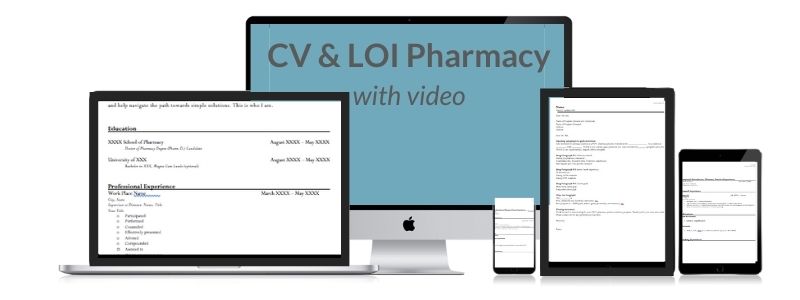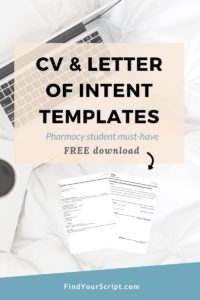Are you a student entering pharmacy school? In this video, I’ll talk about my 4 steps to have success in pharmacy school. Stay until the end for my most important step.
Watch & Subscribe on our YouTube Channel!
Hi, I’m Dr. Jessica Louie and I’m an Associate Professor, Board-Certified Critical Care Pharmacist and entrepreneur. I help people find meaning beyond a job title and let go of burnout. We talk passive income and simplifying on this channel to combat stress and burnout. If you haven’t seen my burnout story or our debt-free journey while in residency/fellowship, please click those video links below.
This video is my personal opinion.
Let’s start by breaking your success down by year. In traditional programs, the Doctor of Pharmacy curriculum is 4-years long or 3-years long if it you are going to a year-round program.
My advice for your first year (P1 Year) as a pharmacy student.
- Enter pharmacy school open-minded about the opportunities and people you will meet. Befriend your classmates during orientation week and exchange phone numbers to start thinking about supporting one another or forming study groups as the semester starts.
- Befriend upperclassman who will help with mentoring you and providing resources for study materials they found helpful.
- Listen to the organization presentations – there are a LOT of acronyms for them – and join at least 2-3 student organizations as a P1 student. Get involved in these organizations as a P1 student so you can narrow down what activities and organizations you enjoy most during your P2 year. You will then be set-up to run for leadership positions as a P2 student.
- Get a Pharmacist Internship position. This is key in applying the knowledge you learn in the classroom setting. Most Schools of Pharmacy have you apply for your Intern Pharmacist License with the State Board of Pharmacy within the first month of P1 year starting. Once you have this, attend the Career Fairs your school provides and apply for positions – many are in community pharmacy settings, a smaller number in hospital pharmacy settings and a smaller number in managed care or MTM settings. If you have never worked before, consider getting these intern pharmacist positions starting in Spring Semester of your P1 year and working 8-16 hours a week during the semester and 30-40 hours a week during summer or winter breaks.
- You can also consider a specialized Intern Pharmacist position as a Summer Internship Program. These typically have detailed application processes and are held for 8-10 weeks during Summer. You can consider the FDA programs, Veteran Affairs programs, Pharmaceutical Industry programs and more. Research, ask upperclassman, ask your faculty advisor, and talk to your Career Services department at your School of Pharmacy to prepare your application
My advice for your second year (P2 year) as a pharmacy student.
- Aim for a positive trend. Many times Fall P2 year can be challenging for students as the higher level therapeutic and integrated courses are started. Aim for a positive trend in your grades from P1 to P2 to P3 year. You may need to adjust to the higher-level disease states and medication complexities.
- Adjust your Study Strategies. With new disease state and medication challenges as a P2 student, be mindful to adjust your study strategies that fit your style. I have other videos on specific study strategies you can learn from – click below. I highly recommend you summarize disease states and focus on content rather than aesthetics of your notes. Sometimes we can get carried away with the colors and markers used. Ugly notes are just as effective as pretty notes to study from.
- Teach others the material. The most effective way to test your knowledge is to teach someone else the material. You can start by pulling out a blank piece of paper and recalling everything you remember from your summary sheet (that is 1-5 pages long). You can teach it to your dog. You can teach it to a classmate in your study group. Anytime you miss a concept, you can leave a note for yourself to go back and review it later.
- Run for a Leadership Position
- Continue your Intern Pharmacist position
My advice for your third year (P3 year) as a pharmacy student.
- Enjoy the journey. Continue to enjoy learning about new disease states and complex medications. Have fun during this process of growth.
- Get inspired and speak to your mentors. Remember your faculty advisors, upperclassman and alumni are here to support you. Continue to engage in conversations with them to see what you want to pursue after pharmacy school. This might mean going to more pharmacy conference – local, state or national.
My advice for your fourth year (P4 year) as a pharmacy student.
- Do well on your APPE rotations. Be open-minded to the learning opportunities. Yes, sometimes you are placed in locations you did not want to be. Use each rotation to learn. You can also watch my video on Advice for APPE rotations here.
- Continue to update your CV and accomplishments. Get your FREE CV template below.
- Keep an Excel file to document interesting cases, interventions, initiatives and projects your complete on your APPE rotations. This Excel file will be useful in finding specific examples and stories to tell during your interviews – many times focused on behavioral questions. Watch my video on Interview Prep and get your FREE interview question guide below with your CV template.
Most important step – have fun and enjoy the journey. Don’t think of racing to the finish line. This can lead to burnout.
How are you preparing for pharmacy school?
Be sure to check out our other videos on Pharmacy Study Resources, how to prepare for NAPLEX exam and how to prepare for Residency Applications.
Your Turn! Comment below on how you stay focused while studying!
Grab your FREE templates today!
Watch & Subscribe on YouTube Channel!
You may also Enjoy Reading:
- How to Stand Out as a Residency Applicant
- Day in the Life of a Critical Care Pharmacist
- Roadmap to Pharmacy Residency
- 5 Ways to Improve Study Habits
- 5 Tips for Staying Focused while Studying
- How to Use Medication Charts to Study Drugs


